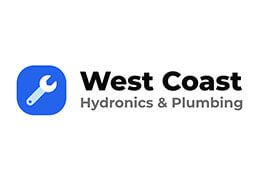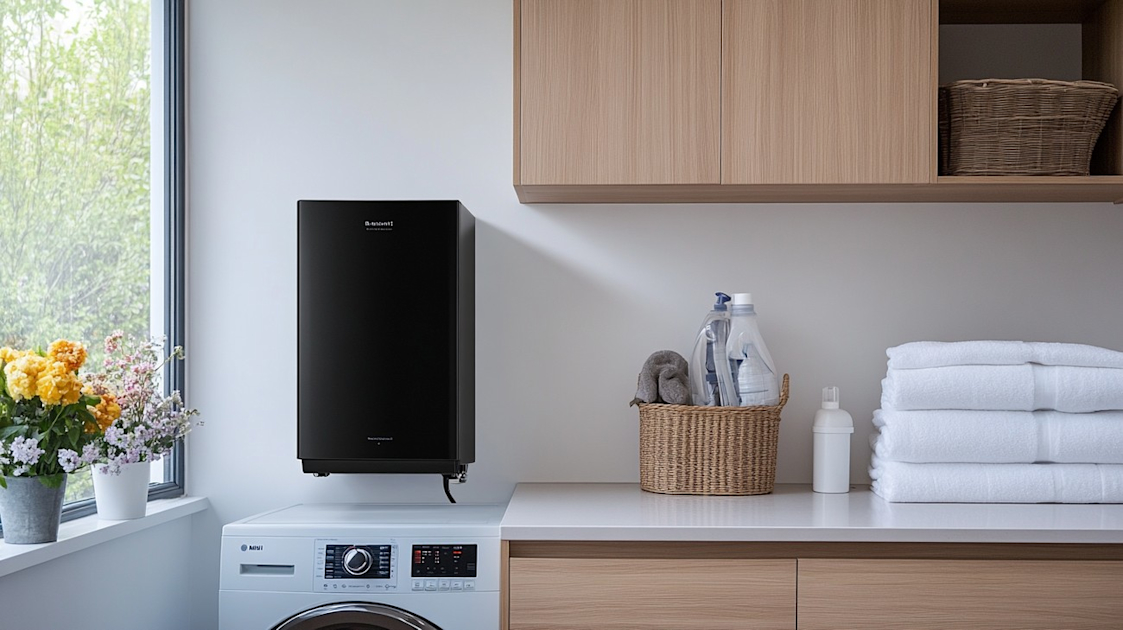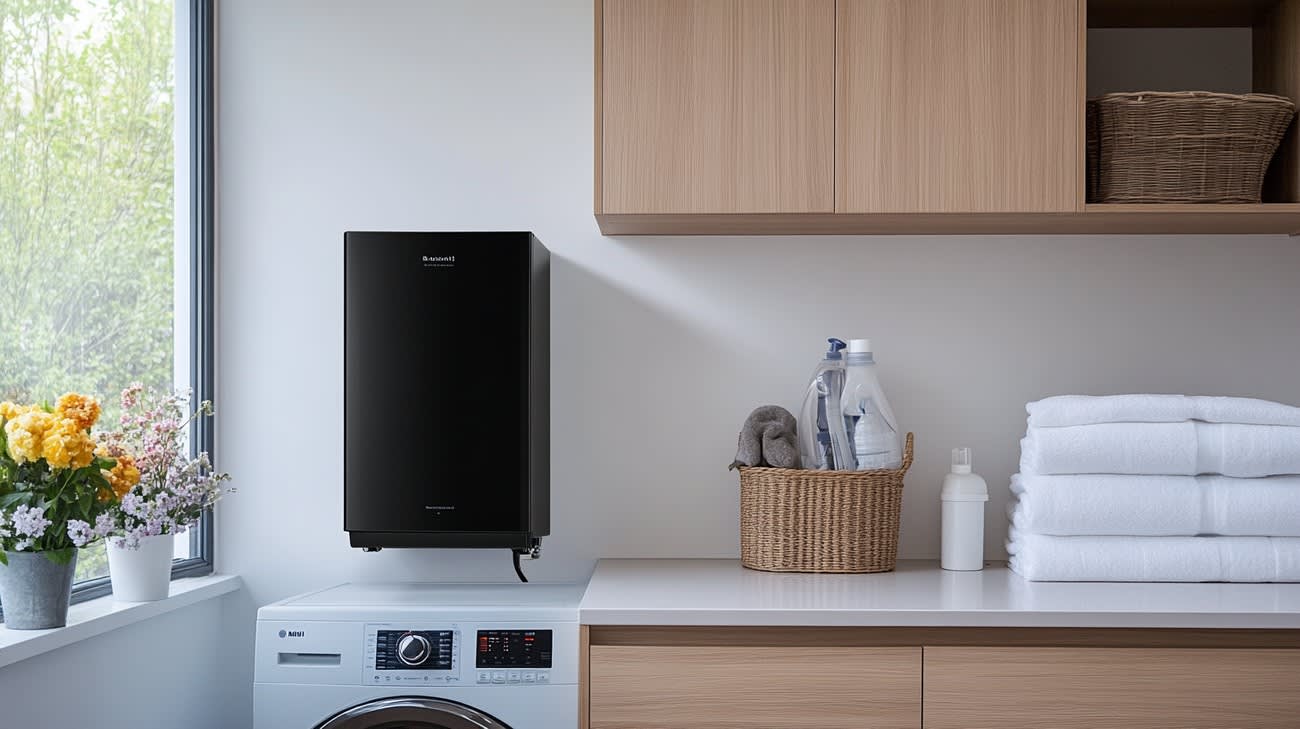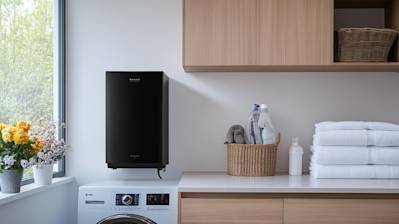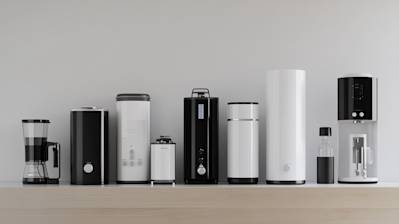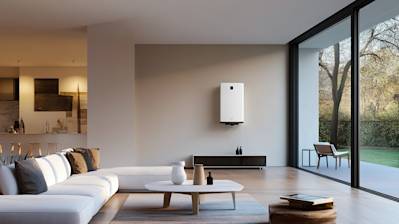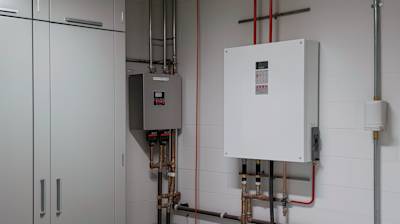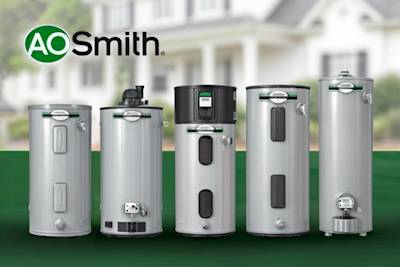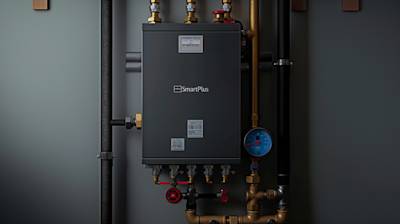Undeniably, hot water has become a modern-day essential. From morning showers to cleaning dishes, our reliance on hot water makes a water heater a vital appliance in the home. Among the many brands available today, Rinnai Water Heaters have carved a niche for themselves due to their exceptional efficiency and reliability. In this blog, we delve deeper into understanding Rinnai water heaters, their features, and what sets them above the rest.
What Makes Rinnai Water Heaters Stand Out?
Rinnai water heaters, a product of Japanese manufacturing expertise, have stayed true to their driving purpose of 'enhancing lives by changing the way water is heated'. Rinnai’s tankless technology offers several key benefits:
- Efficiency: Rinnai heaters are designed to optimize energy utilization, reducing waste, and minimizing heating costs.
- Space-saving: Their compact designs allow for flexible installations, even in tight spaces.
- Endless Hot Water: With Rinnai, you never have to worry about running out of hot water.
- Longevity: Rinnai heaters often outperform traditional tank systems in lifespan.
Rinnai Water Heaters: Behind the Design
Rinnai water heaters stand apart due to their innovative tankless design. Unlike traditional tank heaters, which periodically use energy to keep a tank of water hot, Rinnai’s tankless design delivers hot water on demand.
Technology at Its Best
Rinnai water heaters are built on advanced technology that ensures optimal performance. Some notable tech-driven features include:
- ThermaCirc360™ technology: This technology provides faster hot water wherever you need it, even in outlets with multiple flows.
- Wi-Fi Ready: The modern Rinnai water heaters come with Wi-Fi connectivity that allows remote control through an app. You can monitor and adjust your water heater without having to be nearby.
- Constant Comfort Precise Temperature Control: It ensures the hot water stays at your desired temperature regardless of multiple uses.
Types of Rinnai Water Heaters
Different people have varying hot water needs. To cater to these diverse requirements, Rinnai offers an array of water heater types.
- High Efficiency Models: These models are designed to conserve water and energy, making them a top choice for environmentally conscious consumers.
- Super High Efficiency Models: Offering even greater energy savings, these models integrate condensing technology that warms the incoming cold water, resulting in lesser energy consumption.
- Hybrid Models: These models combine the best of both tank and tankless designs, providing instant hot water and the ability to manage multiple hot water demands.
Rinnai Water Heaters Series
Rinnai designs each series of its water heaters meticulously to ensure maximum functionality, efficiency, and user convenience.
1. Rinnai V Series
The heaters in the V Series are made for smaller homes. They are also quite appropriate for outdoor installation, and can be monitored and controlled via a mobile app.
2. Rinnai RL Series
RL Series offers non-condensing tankless water heaters that accommodate large households. This series is particularly designed to handle simultaneous, multiple uses in large homes.
3. Rinnai RUCS/RUS Series
Perfect for medium to smaller homes, heaters in this series offer a condensing design, promising efficiency and long-term energy savings.
4. Rinnai RU Series
The RU series features ultra-efficient water heaters built with Rinnai's condensing technology. They are perfect for maximum hot water delivery.
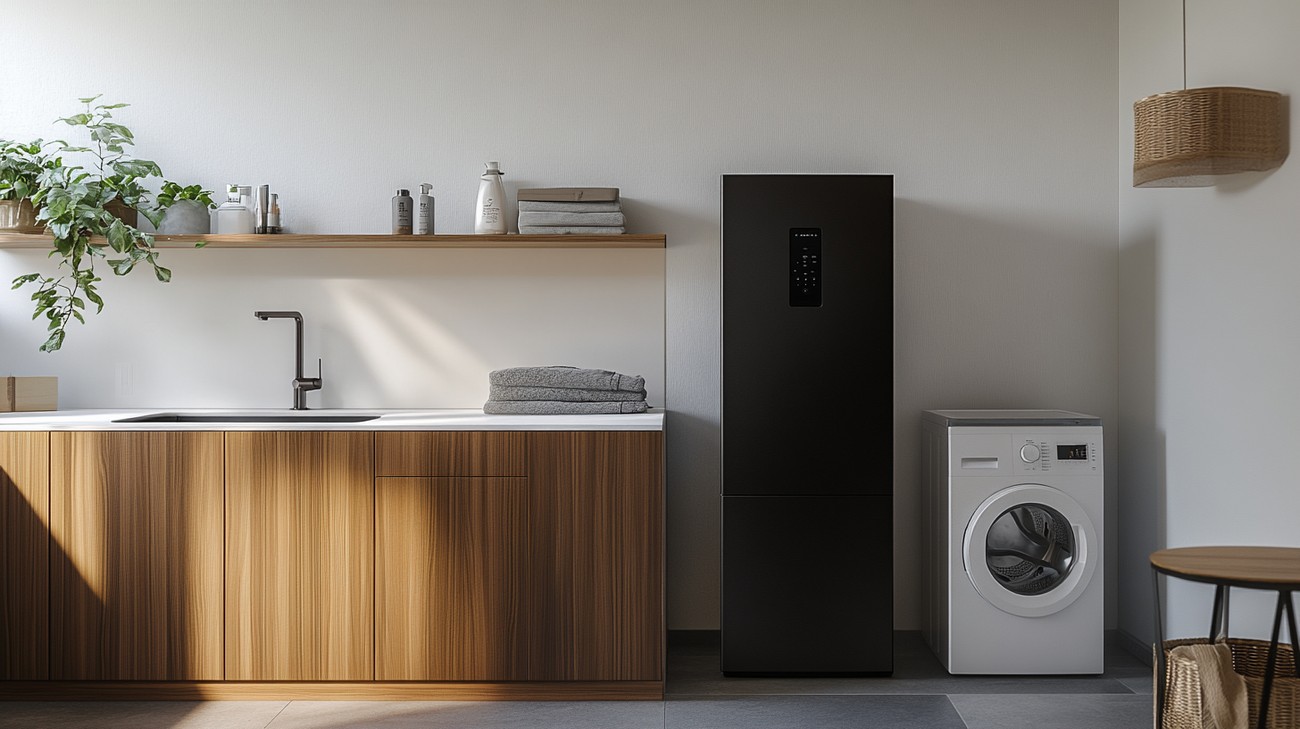
Frequently Asked Questions about Rinnai Water Heaters
What size Rinnai Water Heater do I need?
The size of the Rinnai Water Heater you need depends on the number of devices you expect to run and their total flow rate. Larger homes or places with more household members and appliances would typically need larger, more powerful units. It is best to consult with an experienced plumber or contractor to determine the appropriate size and model for your needs.
How long do Rinnai Tankless Water Heaters last?
Rinnai Tankless Water Heaters are known for their durability. On average, Rinnai water heaters can last up to 20 years when properly maintained - about twice as long as traditional tank heaters!
How do I install a Rinnai Water Heater?
A trained professional should install Rinnai Water Heaters. Depending on the model, the installation may require rerouting gas lines or a new venting system, and it's always important to stay compliant with local codes and regulations.
Does a Rinnai Water Heater need a special vent?
Yes, all Rinnai Tankless Water Heaters require a direct vent, ensuring clean, fresh air for combustion while also safely removing combustion by-products. The necessary venting materials will differ depending on the specific model and installation location.
Can I use a Rinnai Water Heater in a commercial setting?
Yes, you can definitely use Rinnai Water Heaters in commercial settings. Some models are specifically designed to meet the demands of businesses, providing a consistent, reliable source of hot water for restaurants, hotels, salons, and other high-demand environments.
How often should I service my Rinnai Water Heater?
The recommended service interval for a Rinnai tankless water heater is about every 12 months, depending on the model and usage. Regular maintenance ensures optimal performance and extends the lifespan of your unit.
Is a Rinnai Tankless Water Heater energy efficient?
Yes, Rinnai tankless water heaters are indeed energy efficient. Because they only heat water when it's needed (on-demand), they can help save on energy bills compared to conventional water heaters that heat and store water.
Why is my Rinnai Water Heater not providing hot water?
If your Rinnai Water Heater isn't producing hot water, it may be due to several reasons including improper settings, lack of power or gas supply, or a mechanical issue. You may need to reset the heater, check power and gas supplies, or consult with a trained professional for troubleshooting.
Are Rinnai Water Heaters safe to use?
Rinnai Water Heaters are designed with safety in mind. They have built-in safety devices and features such as flame failure devices, overheating cutoff fuses, and freeze protection controllers. However, proper installation and maintenance are crucial for safe operation.

Pros of Rinnai Water Heaters
Energy Efficient
One significant advantage of Rinnai water heaters is their energy efficiency. They are designed using cutting-edge technology, which significantly reduces their gas or electricity usage - depending on the model you opt for. This can considerably lower your monthly bills over time. Furthermore, many models qualify for federal energy rebates, reducing the initial purchasing and setup costs.
Tankless Systems
Rinnai water heaters are often available as tankless systems. This kind of water heater has the advantage of providing heating on demand without the need to maintain a heated water storage tank. Not only does this save energy, but it also ensures that hot water is always available when required. You don’t have to worry about a hot water shortage at peak times, as the tankless system heats water as you need it.
Space Saving
Due to their tankless design, Rinnai water heaters are compact and can be conveniently mounted on walls, making them great space savers. They can be stored in the smallest of spaces, such as cabinets or closets, which can be particularly beneficial for smaller homes or apartments where space can be at a premium.
Large Temperature Range
Rinnai's tankless water heaters feature a wide temperature range that meets varying hot water needs. You can adjust the output temperature for comfort or efficiency based on your preference. This feature can be useful in different environmental conditions, where the incoming water's temperature might differ considerably.
Cons of Rinnai Water Heaters
Higher Initial Costs
Despite many benefits, there are a few downsides to Rinnai water heaters, including higher purchasing and installation costs. Although the initial investment is often worthwhile in the long run, it may be a deterrent for those with tight budgets. They are typically more expensive than their counterparts, and specialized setup needs can add to the total cost.
Heavy Usage Demand
If your household has a high demand for hot water simultaneously from multiple sources, you might face some limitations with Rinnai's tankless systems. While these systems are designed for efficiency and unlimited hot water supply, they can struggle when multiple appliances or taps require hot water at the same time.
Requires Regular Maintenance
Rinnai water heaters require regular maintenance to ensure optimal performance. This includes annual inspections and flushing to prevent mineral build-up. Failure to do so could reduce the system’s efficiency and eventually lead to its breakdown, adding to repair or replacement costs.
Installation Can Be Difficult
The installation process of a Rinnai water heater can be difficult and requires a professional. This not only adds to the already high upfront cost, but it also means you can't attempt to install it yourself to reduce costs. The system requires venting to remove exhaust gases, and this can limit where the heater can be installed within the home.
Limited Options for Electric Models
While natural gas and propane models are plentiful, options for electric models from Rinnai are limited. This could be a disadvantage for those who don't have a natural gas supply line or prefer not to use propane for their home appliances.

Myths and Misconceptions about Rinnai Water Heaters
One of the leading choices among homeowners and businesses for water heating solutions is Rinnai. Despite its reputation and popularity, paving the way for various misunderstandings and misconceptions about Rinnai water heaters has been inevitable. Let’s dive into some of the most common myths and misconceptions that surround these hot water solutions.
Myth 1: Rinnai Water Heaters Are Not Energy-Efficient
Misconception
Many people believe that Rinnai water heaters, particularly the tankless models, are not energy-efficient. This belief is primarily attributed to the fact that these appliances can provide unlimited hot water, leaving some users to think they are continuously running, thus draining energy.
Reality
In contrast, Rinnai tankless water heaters work on demand. That means they only use energy when hot water is needed. According to the Department of Energy, a tankless water heater is up to 34% more energy-efficient than traditional tank heaters for homes that use 41 gallons or less of hot water per day. This feature of Rinnai heaters makes them incredibly efficient and cost-effective in the long run.
Myth 2: Rinnai Water Heaters Do Not Offer Consistent Hot Water
Misconception
Another misconception about Rinnai water heaters is that they fail to provide consistent hot water. People often think that because Rinnai water heaters are tankless, the hot water supply may be cut off or become inconsistent when used heavily.
Reality
We should stress the fact that Rinnai water heaters are designed to produce a continuous flow of hot water. Even when the demand is high, for instance, if you are running the dishwasher and a load of laundry while someone is in the shower, a correctly sized Rinnai tankless water heater can handle the load.
Myth 3: Rinnai Water Heaters Are Not Durable
Misconception
Due to their innovative design and technology, some people think that Rinnai water heaters are not durable and have a much shorter lifespan compared to other traditional water heaters.
Reality
It's important to understand that Rinnai water heaters are constructed with high-quality materials that ensure a longer life expectancy. Furthermore, the lifespan of a Rinnai water heater can be extended through regular maintenance. Most tankless units are designed to last 20 years or longer, much more than the typical lifespan of traditional tank-style water heaters.
Myth 4: Rinnai Water Heaters Are Difficult to Install
Misconception
Rinnai water heaters are said to be complex and difficult to install, primarily due to the unique venting system they use or because most homes are initially set up with a standard tank heater.
Reality
While Rinnai water heaters do require professional installation, they are not inherently more difficult to install than any other water heater. In fact, due to their compact size and flexible installation options (they can be installed on a wall or in a closet, for instance), they can often fit into spaces where traditional tank water heaters cannot.
Myth 5: Rinnai Water Heaters Are Expensive to Maintain
Misconception
A commonly held belief is that Rinnai water heaters are expensive to maintain. People often think that because they are hi-tech, their parts would be expensive, and they would need more frequent servicing.
Reality
Rinnai water heaters do require a certain level of maintenance to ensure longevity. However, the cost of maintenance is not extraordinarily high compared to other water heating systems. In fact, due to the energy efficiency and durability of these models, the costs may be lower in the long run.
Each of these myths might influence your decision when considering a Rinnai water heater. However, knowing the facts can assist in making an educated choice. Always remember to consult your heating and cooling specialist for the best options tailored to your requirements.
Summary
Rinnai water heaters have made a name for themselves as reliable, efficient, and ever up-to-date with the latest technology. If you're on the hunt for a water heater that offers endless hot water instantly, without making you wait or wasting resources, Rinnai could be your answer. They've got it all from traditional tank types to the trendy tankless variants, each designed to suit a range of household needs and budgets.
What sets Rinnai water heaters apart from the competition is their focus on durability and energy efficiency. These heaters are designed to last and keep energy costs down. So not only do you get the comfort of hot water whenever you need it, but you can also save a pretty penny in the long run. Plus, with safety features built into each unit, you can enjoy a stress-free hot water experience.
Lastly, Rinnai water heaters are applauded for their user-friendly design. Even with all their advanced features and functions, operating these heaters is a breeze. Whether you're looking for a basic model or something with a bit more tech, with Rinnai you can count on getting a high-quality appliance that does exactly what it's supposed to do – provide consistent hot water, effectively and efficiently.
About West Coast Hydronics & Plumbing
West Coast Hydronics & Plumbing is a leading provider of premium plumbing solutions located right in the heart of Sacramento, CA. Our team of licensed and skilled professionals is dedicated to providing top-tier hydronics and plumbing services. We’re meticulous, quality-driven, and our commitment to customer satisfaction is unparalleled. From our hometown roots in Sacramento to our expansion throughout the West Coast, we've been proudly 'going with the flow', keeping homes and businesses running smoothly with our blend of cutting-edge technology and old-school dedication to genuine craftsmanship. Join the ranks of our satisfied customers and experience the West Coast Hydronics & Plumbing difference today.
